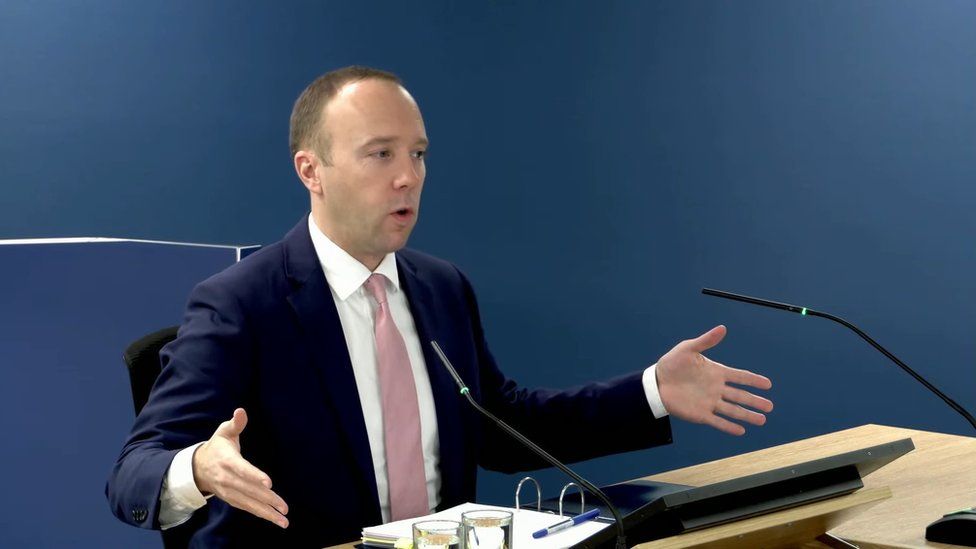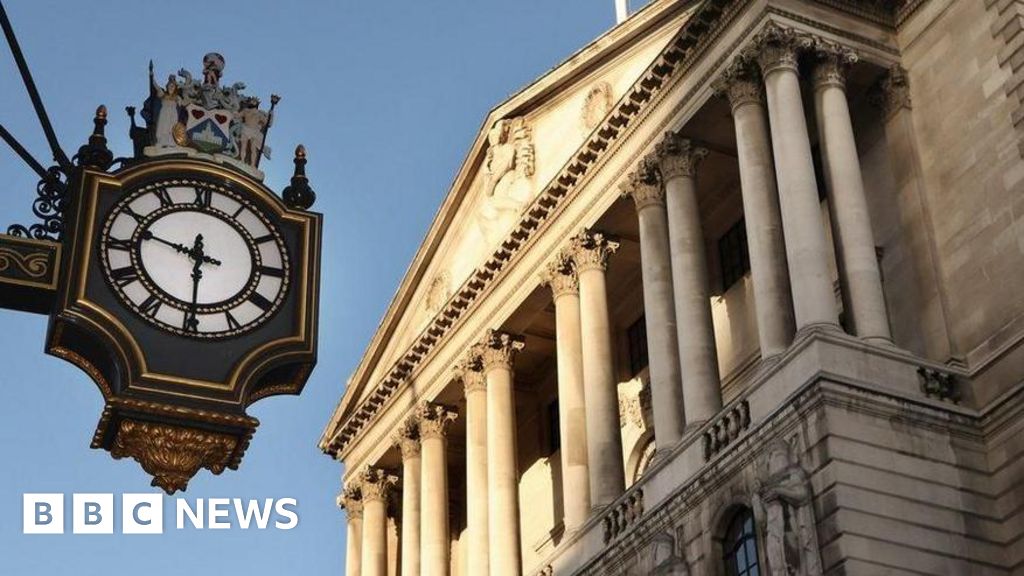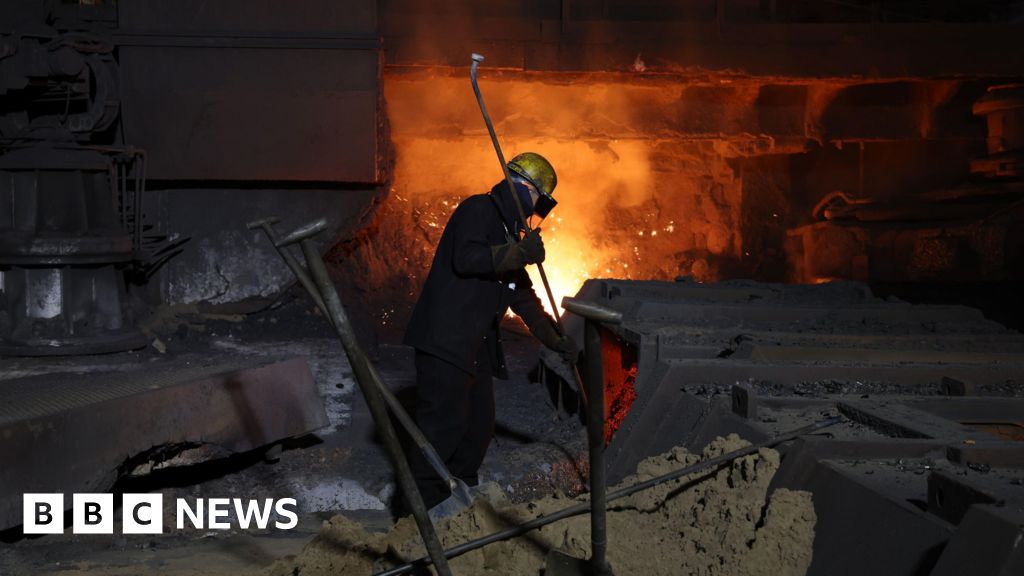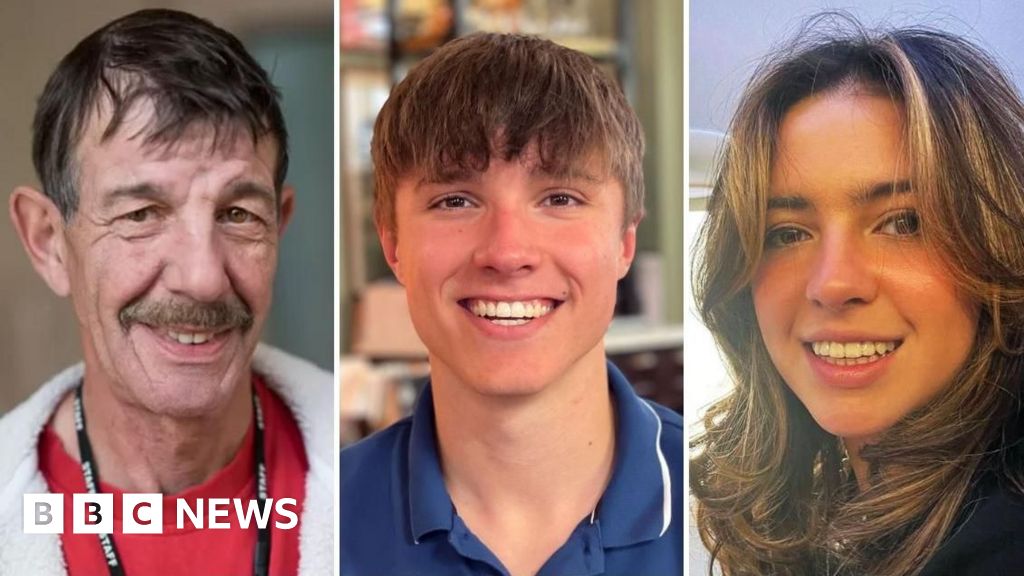ARTICLE AD BOX
 Image source, PA Media
Image source, PA Media
Matt Hancock has accused local leaders such as Manchester Mayor Andy Burnham of putting "politics ahead of public health" during the pandemic.
Appearing at the Covid inquiry, the then health secretary said the government's plans to implement local rules were delayed by their resistance.
Asked if he meant Manchester, he said he was referring to the city's leadership, not the local population.
In contrast, he praised then-Liverpool Mayor Joe Anderson for his support.
But he raised eyebrows when he said Mr Anderson "was sadly, no longer with us" despite the fact the former mayor is still alive.
Responding to the criticism, Mr Burnham said: "That may be Mr Hancock's opinion, but he's wrong.
"The mayor and 10 leaders in Greater Manchester, including a Conservative leader, spent many hours trying to negotiate a deal with the government... it would not have been right to place further restrictions on the residents of Greater Manchester without the financial package to support them."
Mr Hancock also said the way then-First Minister of Scotland Nicola Sturgeon communicated UK-wide decisions was "unhelpful and confusing" and "undermined" the response to Covid.
He said he had a good relationship with health ministers in Wales, Scotland and Northern Ireland and compared their meetings together to "therapy sessions".
Mr Hancock served as health secretary for the bulk of the pandemic but resigned in June 2021 after breaching social distancing guidance.
More on Covid and the Covid Inquiry
On his second day of evidence to the inquiry, he was questioned on government decisions as Covid cases began rising in autumn 2020.
Mr Hancock said watching the case numbers go up was "harrowing" and messages shown to the inquiry revealed that Mr Hancock wanted the government to "act fast" to avoid a second national lockdown.
He told the inquiry's lead counsel Hugo Keith KC: "If we had taken action sooner in September 2020, we might have avoided the need to close schools."
Schools were closed in January 2021 when Mr Hancock said the situation had become so serious that "every lever had to be pulled".
Messages to civil service head Simon Case from late October show Mr Hancock expressing concern that he had been "blocked" from a meeting and that Rishi Sunak, the then-chancellor, was putting "enormous pressure" on then-Prime Minister Boris Johnson "not to do enough once again".
In mid-October, in a bid to slow the spread of the virus, the government introduced the tier system, whereby different rules were implemented in areas depending on the local case numbers.
In his statement to the inquiry, Mr Hancock said he was "in despair" when the policy was announced because he knew it "would not work".
He argued that was because the top restrictions were not strong enough, but also that negotiations with regions had led to delay and confusion.
He said local leaders were under "significant local pressure not to accept measures".
In Liverpool, he said he was able to agree an "effective" package of support, but added: "Others were not so constructive and in some cases actively unhelpful."
Mr Keith KC asked if that is what former Chief Scientific Adviser Sir Patrick Vallance referred to when, in his diaries, he mentioned "difficult negotiations in Manchester".
Mr Hancock said it was and stressed that his comments related to the local leadership, adding "I have got no beef with the fine city of Manchester."
Greater Manchester was placed into tier three restrictions on 20 October meaning pubs and bars had to close and household mixing was restricted.
The decision triggered a row between Mr Burnham and the government over how much financial support should be provided for the area.
Image source, Reuters
Image caption,Andy Burnham gave evidence to the inquiry earlier in the week
Mr Hancock was also asked about the relationship with the UK and Scottish governments by Claire Mitchell KC, representing the Scottish Covid Bereaved group.
The inquiry was shown messages in which Mr Hancock said he wanted to make a particular announcement as soon as possible, saying: "It will leak anyway - and the Scots will try to get their announcement out first."
He told the inquiry: "There were a number of moments when the first minister of Scotland would communicate in a way that was unhelpful and confusing to the public.
"Sometimes, [she] would leave a meeting and begin communication of a decision, for instance, sooner than agreed."
Mr Keith also asked about Mr Hancock's breach of social distance guidance, when he was filmed kissing his aide Gina Coladangelo in his office.
He said: "It is important that those who make the rules abide by them and I resigned in order to take accountability."
He accepted that "transgressions" in his personal life may have impacted the public's confidence in the rules.

 1 year ago
30
1 year ago
30








 English (US) ·
English (US) ·